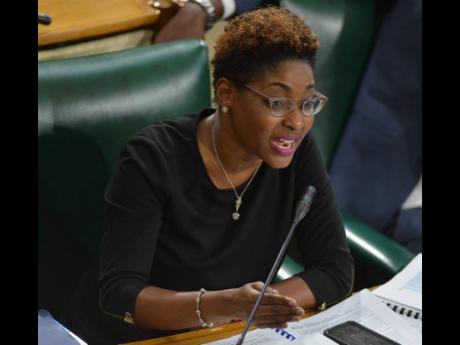Editorial | Trying to kill the IC
This newspaper was an early proponent of the removal of the auditor general from Jamaica’s Integrity Commission (IC), which had nothing to do with the current auditor general, Pamela Monroe Ellis, who we hold in high regard.
But operators of hen houses should be wary when they find themselves in agreement with mongooses over the management of the fowl coops. They should assume that something is wrong, notwithstanding the basis of the congruence.
In that regard, The Gleaner is having to reconsider its position on the auditor general’s role on the IC, a decision reinforced by the efforts of some parliamentarians to render the commission impotent, and exacerbated by last week’s attempt by members of the committee reviewing the Integrity Commission Act to do its work in the dark. This latest event is a call to vigilance – and a reminder of what is at stake.
The incumbent auditor general is the only person specifically named in the law to be among the commission’s five members, although the legislation also states that two members must be retired judges. The others can be drawn from retired public officials with expertise in accounting or finance, or from ex-public administrators or representatives of non-governmental organisations.
When The Gleaner first raised the issue of the auditor general’s membership on the IC in 2019, it was on the basis of the potential for conflicts of interest. Our concern then was that notwithstanding the framework within which the Office of the Auditor General conducts its work, there was the possibility of the two bodies independently conducting investigation on the same matter and arriving at different conclusions, on which the auditor general might be forced to deliberate.
However, during the five years of the IC’s existence, there have been no complaints from anyone subject to an investigation that any matter has arisen to cause concern about the auditor general’s place on the commission.
AGGRESSIVE CAMPAIGN
While The Gleaner considers its position on the issue, it also notes the more aggressive campaign by Everald Warmington, a government minister, to dislodge the auditor general from the IC, ostensibly on the basis that her presence is a breach of the Constitution.
His argument, first broached in 2021, is that there is an inherent conflict in the auditor general being a member of a body that her office was constitutionally authorised and obligated to audit.
But as Ms Monroe Ellis has explained, independent auditors have been commissioned to conduct annual financial audits of the Integrity Commission, which is allowable in law and used by the Office of the Auditor General with respect to other institutions.
We might have considered Mr Warmington’s position as merely an arcane constitutional/legal question, but for two things: we have sensed an aggressive campaign by some government members of various parliamentary committees to undermine Ms Monroe Ellis and to contain the robustness with which her office undertakes audits of ministries, departments and agencies; and there are a raft of proposals, unveiled by Mr Warmington in March, that would severely weaken the commission.
Mr Warmington’s suggestions include removing privilege from commission reports tabled in Parliament. That would make them subject to defamation suits, with potential liability by the commissioners and the direct authors of the reports.
SHOT ITS USEFULNESS
Mr Warmington also wants to eliminate the IC’s independent corruption prosecutor; withdraw the commission’s ability to investigate matters before its formal 2018 launch; and by declaring the IC “a committee of Parliament”, give legislators the power to “impeach” the commissioners, rather than retaining the system for their removal, similar to that for judges on allegations of misconduct.
Put bluntly, Mr Warmington’s proposals, which received more than tacit support from government members of parliament, would place the Integrity Commission directly under the thumbs of politicians. Its usefulness as an anti-corruption body would be shot.
For some inexplicable reason, Ed Bartlett, who chairs the committee reviewing the Integrity Commission Act, wanted to hold last week’s session in secret. Happily, even some government members, aware of the contentiousness of their deliberations, felt that the proposed in-camera meeting was a bridge too far. They eventually relented, which did not stop the dumping on the IC.
Hopefully, Mr Bartlett’s little campaign against transparency has exhausted itself. But we cannot be too vigilant.

